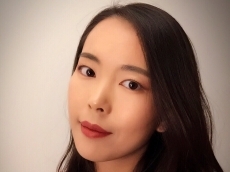Practicum Experience: Yujia Wu
Last September, I joined the Ontario Jewish Archives (OJA) as a practicum student and started my first digital preservation project in an archival setting. First, please let me introduce myself. I am a master of information student at the University of Toronto, studying archives and records management and human-centred data science. As an emerging information professional, I have always been excited about applying all the knowledge and skills that I have learned at the university to real-world practices. Fortunately, the OJA offered a practicum project, and I was able to join the OJA team and contribute to their Digital Preservation Project. This practicum project also gave me an opportunity to get hands-on experience before I start my professional career in archives management.
Over the past few months, I have been working to preserve the digital versions of thirty-five oral histories. The world has accepted the digitalization of various services and items that we use in everyday life, and digitization is becoming one of the standard forms for preserving the information contained within organic and fragile materials in archives to ensure that valuable information will be viewable and retrievable for future reference. Therefore, the preservation of digital materials has become one of the main responsibilities of archival repositories in the twenty-first century. The oral histories represent a small but significant part of the OJA’s digital assets and need to be uploaded to and preserved in a cloud-based digital preservation system (Preservica) to ensure that they remain accessible to future generations for decades to come.
My work procedure included the following key actions: first, preparing the digital files by editing and tidying up the entries, transcripts, and interview logs; second, ingesting all digital files of each oral history into Preservica and creating descriptive metadata; and finally, updating the database and catalogue in DB/Textworks (a database management system).
I tried to pay more attention to details and be as cautious as possible, especially when assigning descriptive metadata to each oral history. Descriptive metadata can be vital for digital assets because they describe the resources for identification and discovery purposes; one mistake can make the digital assets unidentifiable, thereby decreasing their accessibility. The transcripts editing was also a fun part of this project. I will have to admit that it can be a bit time-consuming sometimes, but I found my way of enjoying it. By going through the interview logs and transcripts, I was able to read the life stories of people in the Jewish communities, some of which concerned refugees who immigrated to Canada during the Second World War. I got to know more about Jewish history, traditions, and culture, as well as the world situation in the early twentieth century. It became a great way of broadening my knowledge.
The most rewarding part of this project was not only about completing it. It safeguarded these oral histories and preserved the memories of Jewish people in Ontario. Besides, it also enhanced the accessibility of the OJA’s digital assets and allowed users to reach oral histories in a more flexible way. More importantly, the completion of this project can help foster the recognition of Ontario’s Jewish community and enhance the multiculturalism of our society.
It has been my pleasure to participate in this wonderful and meaningful project. I gained a deeper understanding of the sociocultural responsibilities of archival professionals and the critical role that archivists played in supporting the social and cultural development of society. It was a great experience, and I will continue developing my professional knowledge and skills and go further in this career.
Finally, I would like to take this opportunity to express my gratitude to my supervisor, Michael Friesen, for helping and supporting me throughout this project; and I would also like to thank Donna, Dara, and Faye, for having me as part of the team. Unfortunately, I was not able to work in the archives due to the ongoing pandemic situation, but I do hope that I can visit the OJA someday after the pandemic ends and meet each of you in person.
